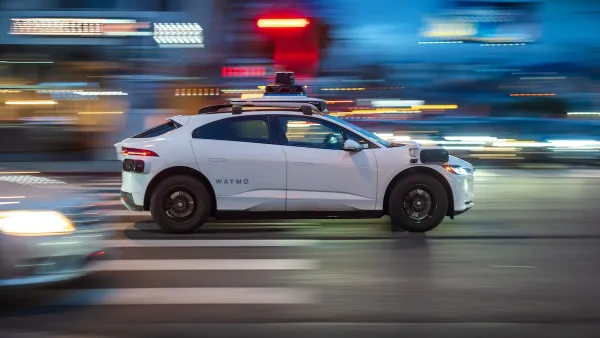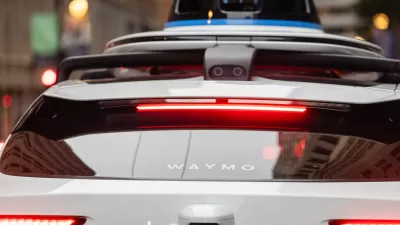Promoting his upcoming book on transportation planning, Randal O'Toole says his central argument is that rail is a dead end and driverless car technologies are the answer to our congestion problems.
O'Toole's argument is that since mass transit of any kind can never approximate the personal mobility afforded by the automobile, and expanding highways is politically difficult, the only solution is to make the highways we have more effective. And that means technologies that take control of your car on the freeway so you can zoom along in sync with the other cars at higher speeds.
"Because computer response times are much faster than those of a human, cars controlled by on-board computers can operate much more closely to one another than human-controlled cars. This means that highway lanes that can now move only about 2,000 vehicles per hour will be able to move 6,000 to 8,000 vehicles per hour.
Unlike the infamous flying cars, driverless car technologies are not pie in the sky.'"
FULL STORY: The Ultimate Transportation Antiplanning Book

Planetizen Federal Action Tracker
A weekly monitor of how Trump’s orders and actions are impacting planners and planning in America.

Restaurant Patios Were a Pandemic Win — Why Were They so Hard to Keep?
Social distancing requirements and changes in travel patterns prompted cities to pilot new uses for street and sidewalk space. Then it got complicated.

Maui's Vacation Rental Debate Turns Ugly
Verbal attacks, misinformation campaigns and fistfights plague a high-stakes debate to convert thousands of vacation rentals into long-term housing.

In California Battle of Housing vs. Environment, Housing Just Won
A new state law significantly limits the power of CEQA, an environmental review law that served as a powerful tool for blocking new development.

Boulder Eliminates Parking Minimums Citywide
Officials estimate the cost of building a single underground parking space at up to $100,000.

Orange County, Florida Adopts Largest US “Sprawl Repair” Code
The ‘Orange Code’ seeks to rectify decades of sprawl-inducing, car-oriented development.
Urban Design for Planners 1: Software Tools
This six-course series explores essential urban design concepts using open source software and equips planners with the tools they need to participate fully in the urban design process.
Planning for Universal Design
Learn the tools for implementing Universal Design in planning regulations.
Heyer Gruel & Associates PA
JM Goldson LLC
Custer County Colorado
City of Camden Redevelopment Agency
City of Astoria
Transportation Research & Education Center (TREC) at Portland State University
Camden Redevelopment Agency
City of Claremont
Municipality of Princeton (NJ)




























